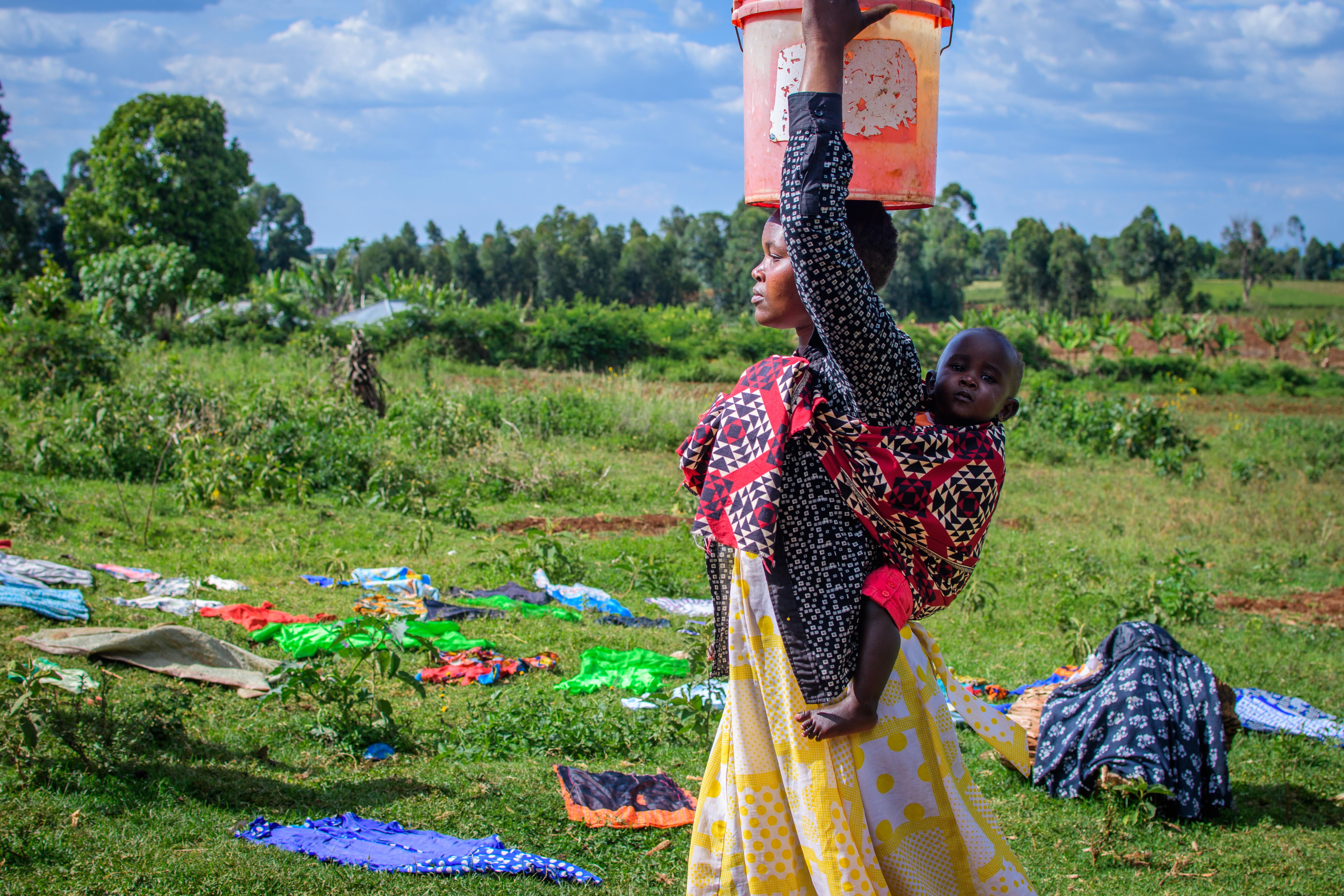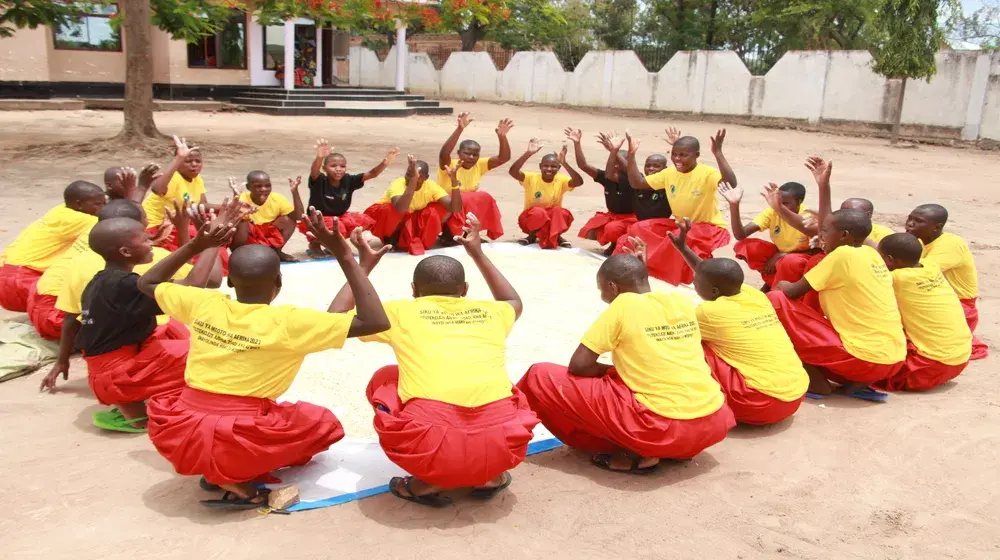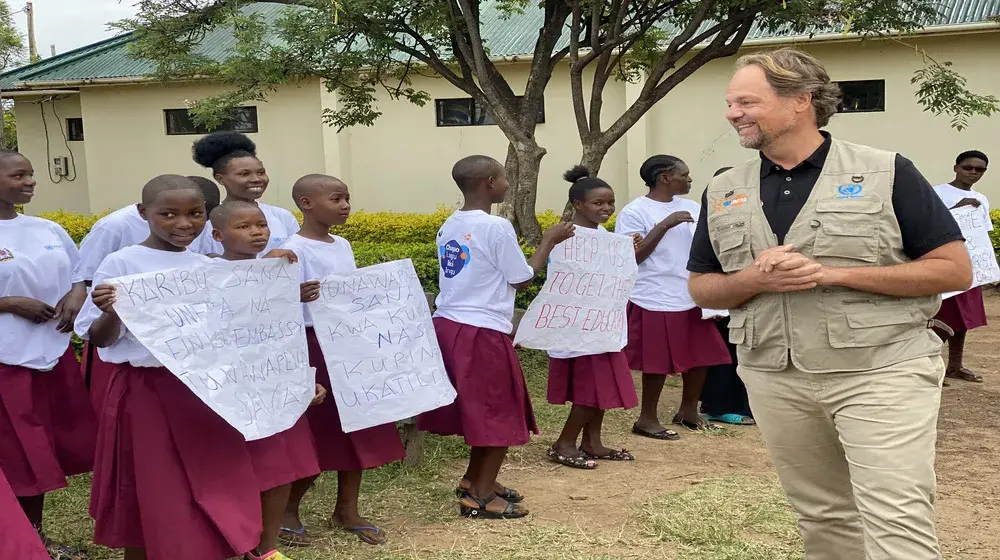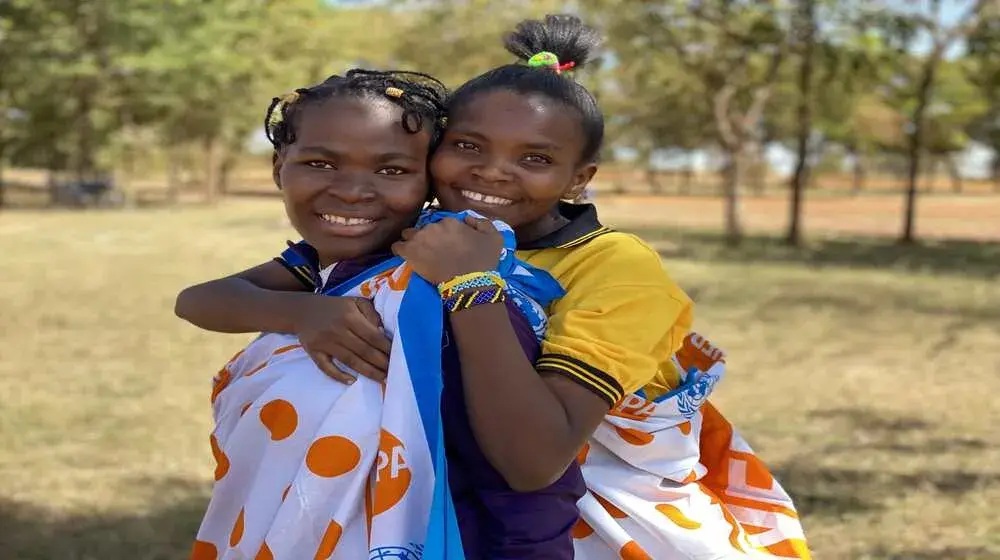Hope for Girls and Women runs two safe houses in Serengeti and Butiama Districts, Mara Region, Tanzania, for girls who are fleeing female genital mutilation (FGM). In spite of the criminalization of the practice in Tanzania in 1998 – and the government’s commitment to deliver on the global goal of zero gender-based violence (GBV) and harmful practices – including FGM – by 2030, the region has the highest rate of spousal violence in the country; over 50 per cent of adolescent girls (15 to 19 years) are married by the age of 18; and 32 per cent of women and girls (15 to 49 years) have undergone FGM.
School closures put girls at heightened risk to FGM
On 17 March, the Government of the United Republic of Tanzania announced the closure of all schools – kindergarten to secondary – for 30 days to mitigate the spread of the COVID-19 pandemic; the following day all universities, colleges and vocational training centres also closed.
As in other countries in the region the COVID-19 crisis, and its accompanying lockdown measures, has the potential to derail progress to eliminate FGM in Tanzania, something Rhobi Samwelly, founder of Hope for Girls and Women, is already witnessing.
The cutting season – the time of year when most FGM/cutting activities take place in the region – is not due to start in Mara until December, but Hope for Girls has already rescued 62 girls at risk of FGM – acting on tips offs from community members and working with the Police Gender and Children’s Desk. They were unable to reach an additional 60 girls who had already been cut by the time support arrived. Valerian Mgani, Association for the Termination of FGM, also in Mara Region, tells a similar story – 27 girls have been cut since March, something Valerian says he has never seen before.
Resouces are stretched
The pandemic is also having another, less reported, impact on ending FGM efforts: already stretched resources have to go further. Hope for Girls provides its residents with vocational training and also supports girls with fees and boarding costs to attend school. But with the closure of education institutions, girls have had to return to the safe houses, which means there are more mouths to feed and more bodies to accommodate.
Butiama and Serengeti safe houses have a combined capacity of 100 – they are currently home to 187 girls. A classroom and office are now doubling up as dormitories where girls sleep two to a bed, head to toe, due to a shortage of mattresses. ATFGM Masgana is also housing 187 girls at its centre – although numbers are decreasing with the reopening of universities, colleges and vocational training centres and Form 6 of secondary school last week. Valerian and Rhobi are both worried, however, that when all educational institutions are open there will be a noticeable number of girls who do not return – those who have been married off and those whose parents, affected by the COVID-19 economic fallout, can no longer afford the school fees.
Building back better
The year 2020 is the start of the Decade of Action, with just 10 years remaining to deliver on the global goals of the 2030 Agenda - including zero GBV and harmful practices – for everyone, everywhere. Nobody could have predicted that the turn of the decade would be dominated by a global pandemic, but many lessons have already been learned from the crisis, including a core sentiment of the blueprint for equitable and sustainable development – that nobody must be left out or left behind.
As we move forward UNFPA, and its partners, will accelerate and deepen its efforts to ensure that progress made towards national and global goals towards eliminating FGM in Tanzania does not stagnate or at worst reverse, with a focus on building back better – a healthier, safer and more equitable world for the women and girls of Mara Region and Tanzania, a world where they are not denied their rights and can realize their dreams and aspirations.
Footnotes
1. UNFPA is supporting the government to implement the five-year National Plans of Action to End Violence Against Women and Children (2017/8-2021/22) in mainland Tanzania and Zanzibar.
2. Tanzania Demographic and Health Survey 2015/16.
3. As part of national COVID-19 efforts, UNFPA is prioritzing the continuity of life-saving, multisector services for GBV survivors and most at-risk women and girls. We are partnering with C-Sema, the operators of the National Child Helpline, and other toll free, phone-counselling service providers to strengthen remote access to mental health and psychosocial support and referral mechanisms for GBV survivors.
4. UNFPA Tanzania provided financial and technical assistance to Hope for Women and Girls and ATFGM Masanga in 2019.





